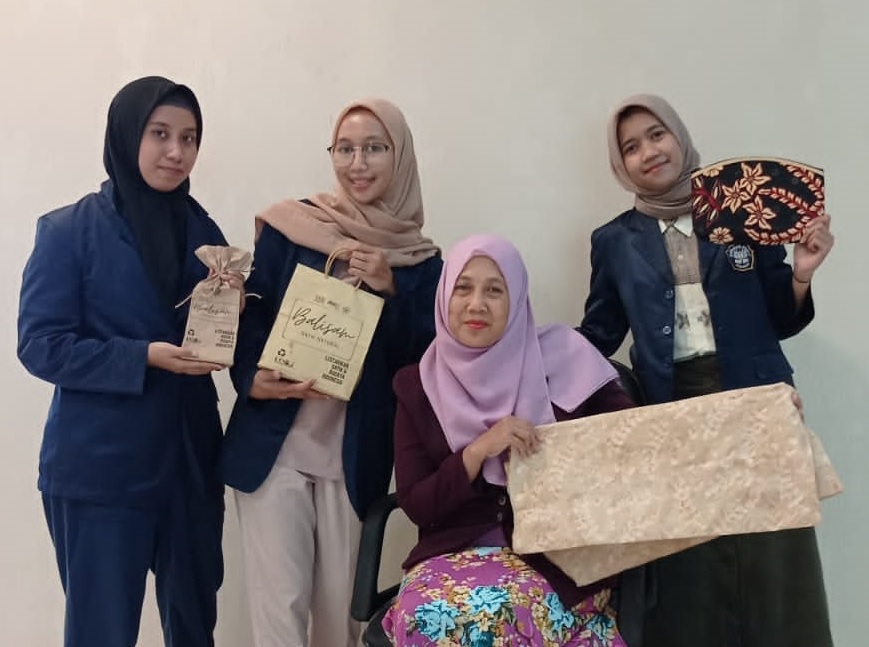Based on data from the Ministry of Environment and Forestry, the amount of waste generated by Indonesia in 2021 is 24,517,371.96 tons/year with a total waste of paper/cardboard of 12.2%. Paper waste takes 2-5 months to decompose, while cardboard or carton waste takes five months to decompose.
Based on these data, it means that 12.2% of paper or cardboard waste has not been utilized properly. In addition to paper waste being a problem, the long term use of wax in the batik process is also not good for the health of the batik maker.
In the batik process, wax must go through a burning process to produce liquid wax which can be used as a color barrier. Burning candles produces carbon dioxide which is bad for the health of batik makers in the long term.
Seeing these two phenomena, three Politeknik Negeri Semarang (Polines) students, namely Tiara Dalila Furqan (D-4 Financial Analyst), Dina Setya Rini (D-4 Financial Analyst), and Diksi Aisyah Isna (D-3 Electrical Engineering), initiated a ideas and create a product called “BALISAM” (Batik from Paper Waste and Tamarind) through the 2021/2022 Student Creativity Week in Entrepreneurship (PKM-K) program funded by the Ministry of Research, Technology and Higher Education (Ristekdikti).

The main objective of making this product is to open up new business opportunities that have the potential for a wide market share and guaranteed availability of raw materials. This is because BALISAM uses raw materials derived from paper waste and tamarind seeds so that their availability is guaranteed. In addition, the manufacture of this product uses recycled materials which means it can preserve nature and be environmentally friendly. And what is no less important is that the production of BALISAM is tantamount to preserving Indonesian culture, namely batik.
It is hoped that this product will be able to compete with other similar products that have been circulating in the local and foreign markets. The public in general and the target market in particular are also expected to like these eco-friendly Indonesian traditional cultural products for the sake of cultural preservation and nature conservation.

